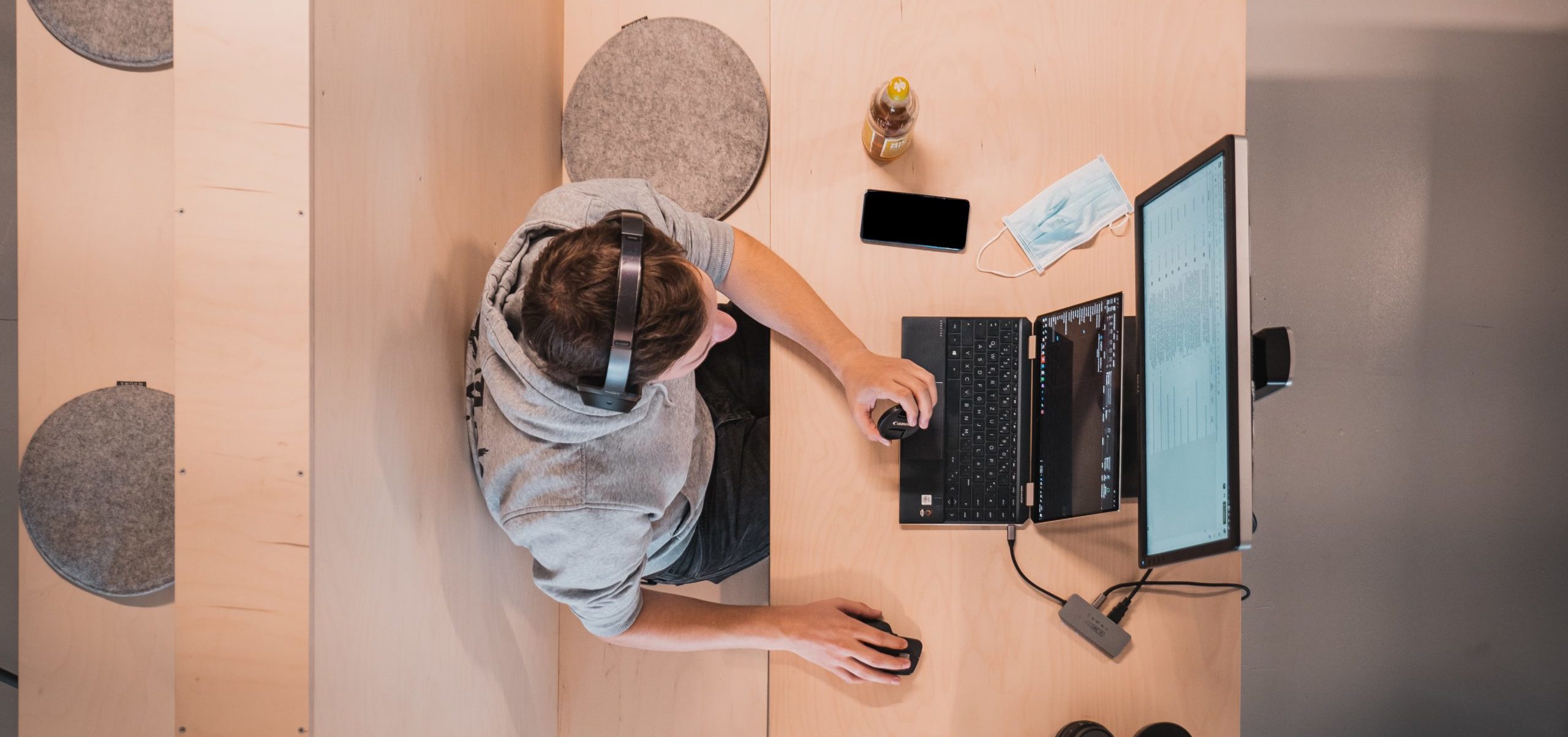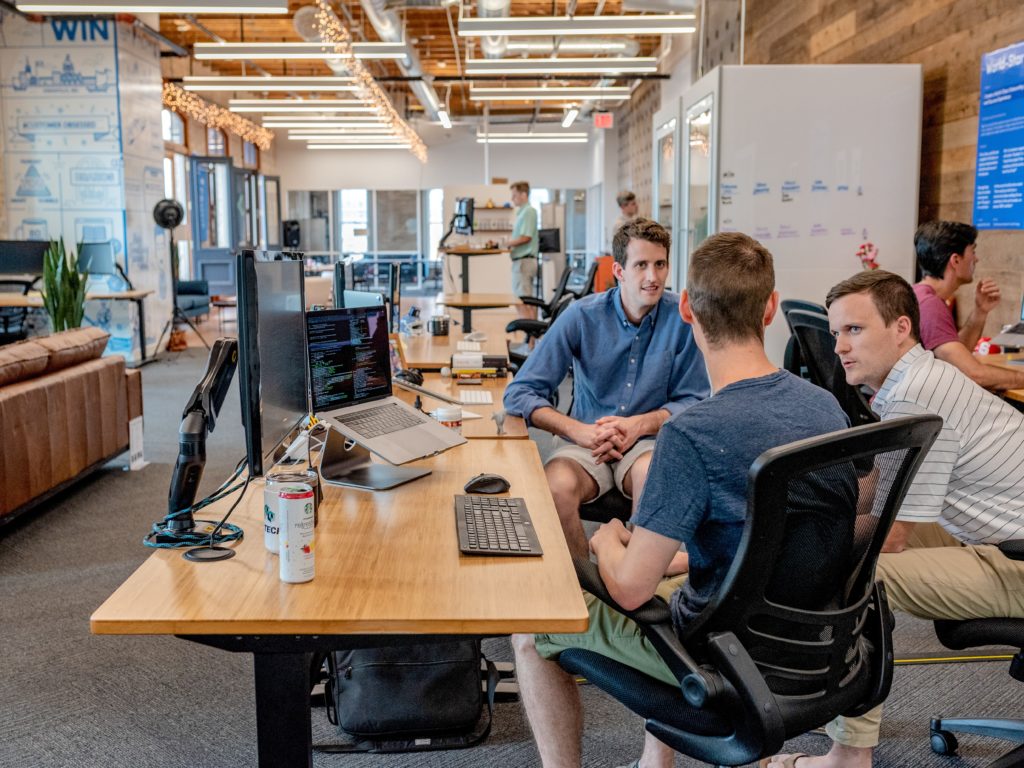The working world is forever changing. Traditional educational methods no longer apply to many real-world working scenarios. As educators, how can we effectively go about preparing students for the workplace?
The answer is experiential learning—an innovative, 21st-century educational approach that focuses on learning through experience.
In this article, you’ll find everything you need to know about experiential learning, including a brief history, a summary of its benefits, and how higher education institutions are successfully integrating this exciting learning methodology within their classrooms.
What is experiential learning?
The experiential learning process has existed since the early days of education, it became increasingly popular in the 20th century as a non-traditional, hands-on approach to learning. This approach came as a welcome alternative to the traditional lecture-based teaching methods of the past.
John Dewey, an American educational reformer, psychologist, and philosopher, first popularised experiential education, arguing that knowledge comes to us through engaging with natural objects.
Educational theorist David Kolb built upon Dewey’s experiential education theory in the 21st century, developing the experiential learning pedagogy—a learner-centred approach focusing on learning by doing. This approach encourages students to think critically, problem-solve, evaluate, and take risks with their education.
Essentially, the experiential learning approach encourages students to explore their interests through hands-on projects and activities. A popular experiential learning process, known as work-integrated learning, involves students participating in placements, internships, or simulations related to their chosen career path.
As an example—if a work placement or internship at a law firm isn’t possible—students studying law could benefit from a mock court scenario, where each student takes on different courtroom roles and ‘acts out’ a pre-planned case.
Similarly, project-based learning involves hands-on projects. Popular projects include researching a current topic, building a student farm, or creating a business plan.
Why do students need experiential learning?
In today’s world—and especially in tertiary education—we continue to see a shift from traditional to experiential learning. Universities are increasingly delivering these programs to offer students a competitive edge as they set off on their career paths.
Through work-integrated learning, for example, university students can enjoy experiences they wouldn’t have access to in a traditional classroom environment, helping them gain practical skills and academic knowledge. Some benefits include:
- Building problem-solving skills,
- Cultivating creativity and innovation,
- Learning industry-specific skills,
- Developing leadership and teamwork skills.
Not only will students learn skills relevant to their industry of choice—but they’ll also discover more about themselves. For university students especially, experiential learning provides learners with an opportunity to explore different options before committing to a particular career path.
As such, students will learn more about their preferred field of study or career path, while also developing everyday life skills such as confidence, initiative, and interpersonal skills.
How can experiential learning prepare students for the working world?
Students thrive in experiential learning environments because it offers them real-life experience in an industry of their choice. Retention rates soar, skills grow—and the practical knowledge students develop through this method becomes even more valuable as they enter the working world.
The knowledge and skills that experiential based learning provides through technical education are essential for 21st-century success in the workforce—both in general and within specific industries. Here are just a few examples:
- Collaborative and interpersonal skills
- Practical skills and knowledge
- Creativity and critical thinking
- Effective conflict resolution
- Problem-solving
- Initiative and self-management
- Organisation
- Technological skills
- Foreign language skills
- Learning agility
- Emotional intelligence
- Entrepreneurial skills and an entrepreneurial mindset
The shift from traditional education to experiential learning has helped teachers effectively prepare the next generation of students as they enter the workplace. According to a McKinsey report, the experiential learning cycle is the most effective way for learners to achieve career readiness.
According to an investigation conducted by The Conversation in 2016, students who participate in internships have lower rates of unemployment following graduation—and that engaging students in several short internships lead to better employment outcomes.
These results reflect the idea that companies prefer job applications with relevant skills and experience—something that an experiential learner can easily provide.
For example, a student hoping to find a job as an accountant will benefit enormously from having hands-on experience with software like QuickBooks, Xero, and MYOB.
Further still, meeting with industry experts can give budding accountants an invaluable leg-up in the industry, helping them walk into their first position confident and ready to take on the world.
To summarise, in today’s challenging job market, it’s more important than ever for students to leave university with a broad range of highly applicable, job-ready skills. And experiential based learning is the best way to guarantee that outcome.
Today’s educators have a responsibility to offer professional development for graduate students, preparing them to join tomorrow’s workforce and instilling them with job-specific skills.
How university students benefit from experiential learning Cycle
Experiential learning practices play an essential role in professional development for undergraduate students. Let’s dive deeper into some of the key benefits involved.
Offers students real-world experience
Experiential learning offers young people real-world experience, opening doors to different industries and helping them discover pathways to future careers. Learners also have the opportunity to develop soft skills, like teamwork and time management, enhancing their chance of success in the future workforce.
Allows students to apply their knowledge practically
Through experiential learning, students enjoy the opportunity to express their skills and knowledge in a practical way. For example, a student who has worked hard on their programming skills can put them to the test by designing, building, and trialling a real program or app.
Helps students realise their career path
Experiential based learning also helps students discover their interests, which can lead them towards their ideal career path. In the same way, learners can discover whether a particular path is right for them and enjoy effective career preparation.
Opens doors to finding professional contacts
Students undertaking internships (whether in-person or virtual), work placements, or simply meeting with industry leaders have the chance to develop lasting working connections. These professional contacts can propel them towards future career opportunities and help better prepare students for their chosen industry.
How learning institutions benefit from experiential learning
It’s not only students who benefit from experiential learning—teachers, local employers, and learning institutions do, too!
Attracts and retains student attention
The idea behind experiential learning is that it can provide students with the context and knowledge that they need to understand what they’re studying. This type of education also allows them to relate their own experiences and thoughts to what they learn, which makes it easier for them to absorb concepts and retain information.
Enhances student employability
The benefits of experiential learning are many, not only for students but also for their employers. Many companies are looking for candidates who have practical, work-related knowledge to help their business run smoothly—and experiential learning provides invaluable professional development for students.
Grows industry engagement
Through existing experiential learning platforms, students engaged with authentic industry projects, experiences, and internships. In this way, learners can help industries provide meaningful services, build stronger teams, and even create new products.
Experiential learning students essentially act as accelerators within their chosen industries, validating concepts and developing fresh ideas to help organisations thrive.
Reduces delivery costs and boosts scaling
Through experiential learning platforms like Practera, educational institutions can scale their delivery costs, enabling them to effectively deliver an expert-led learning experience.
In this way, institutions can deliver educational experiences at a significantly lower cost per learner than traditional classrooms.
Engaging students: how to apply the experiential learning methodology
Here are some examples of how educators can apply experiential learning methodology, preparing students for the future workforce:
- Field trips and excursion
- Online meetings and discussions
- Hands-on learning
- Presentations
- Internships and work placements
- Work simulations
Developing an effective experiential learning activity or project starts with understanding your students’ needs and interests as individuals. Ideally, learners will choose a topic and guide the research, development, and reflection process.
You can also take an overarching classroom topic and build experiences around it. For example, if your class is currently learning about rock formations, why not plan a field trip to a local conservation park or geology trail?
Using Practera’s experiential learning platform
Practera’s powerful experiential learning platform allows educational institutions to attract and retain more students, boost their employability, grow industry engagement, and reduce delivery costs.
Through this innovative platform, educators can deliver engaging and varied experiential activities and programs to students, including team projects, internships, and work simulations. Practera’s platform also facilitates global mobility, allowing learners to connect with industry leaders across the globe.
We also offer project-based learning managed services to help connect students with industry leaders and support them throughout our programs. With a dedicated program manager, you can make the most out of your students experiential learning experiences with Practera.
30-day free trial
Receive an exclusive 1:1 onboarding for your 30-day free trial with one of our experts and learn how to author, manage and launch amazing experiential learning programs with one easy-to-use platform.
So, how does the platform work?
Practera’s platform allows teachers to seamlessly design, deliver, and manage experiential learning programs—all through one simple platform. Create a streamlined brand journey with the platform’s white labelling tools or use the in-built templates to craft your first experiential learning project.
To get started with Practera’s experiential learning platform, contact our friendly team. You can also download our latest white paper to find out more about how the platform could benefit you.




